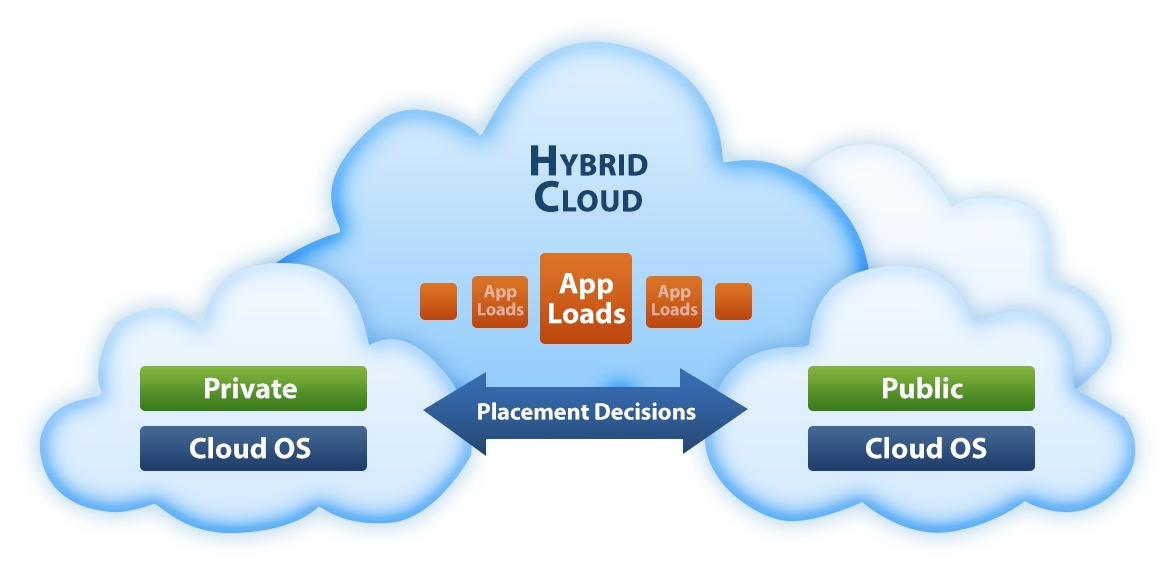Recent surveys suggest that nearly 93% of enterprises have already embraced cloud computing technologies is some way or the other. So, to stay ahead in this cutthroat competition, it is important to utilize the benefits which cloud hosting has to offer. So, embracing cloud technologies is not a choice anymore for businesses; rather, it has become a necessity. Modernizing the enterprise infrastructure is unarguably a key step in pushing digital transformations. Whether it is incorporating smart device or installing innovative applications, or capturing information for newer insights, the cloud is indispensable.
Why do you need to choose a cloud model for your business?
To ensure that your business does benefit from the cloud, it is also important to choose the right cloud computing model. It is the nature of your applications and data which will actually determine which cloud model is best suited for you. For mission-critical apps you need high-end availability, for web apps you need elasticity; for databases you will need data sovereignty and security. So, migration to the cloud is not as easy as it sounds. Like any other crucial business decision, this too demands extensive planning and research. This is when it becomes imperative to understand clearly the differences between the public and private clouds.
How will a public cloud benefit your enterprise?
In public cloud hosting, your data or apps are hosted on shared infrastructure which is provided by the cloud vendor. So, you will not need to provide for hardware purchase and maintenance and the host is completely responsible for managing the hardware. This explains why this type of cloud hosting can provide you with unparalleled scalability. Businesses are free to scale up or down their resources and pay only for the resources they use. So, businesses gain access to resources in real time and they can get the latest software innovations too.
So when you are an organization which needs fast deployment, a public cloud is the best solution. It is perfect for sites and productivity apps which have high bandwidth demands and need high availability and scalability. It will also need high end bandwidth connections which are backed by high-performance computing solutions. Businesses that need cloud bursting features, whereby there can be a temporary resource increase as and when needed, will benefit from a public cloud. Finally, public clouds will also offer disaster recovery services to guarantee business continuity when there are outages.

How can a private cloud benefit your enterprise?
The private cloud, on the other hand, is tailor-made infrastructure which is exclusively dedicated for your company needs. It may be either hosted on-site or in the data center facilities which are run by cloud providers. This implies that the biggest benefits you can get from this type of cloud hosting are control and high-end security. So, for businesses which must follow strict regulations and show compliance to accepted standards and government rules, this model is best suited. Private clouds will provide you with greater customizability for the hardware in order to cater to specific business needs. Most importantly, it will work only for your enterprise and you can therefore expect to get access to high-end enterprise-grade hardware, storage and networking.
So, the private cloud works best for businesses needing compliance and data security or those hosting very sensitive data. It is also useful for businesses which have applications needing high-performance accompanied by very low latency. Businesses which have limited IT departments or remote offices that are keen to install new on-site cloud models can benefit from this type of cloud computing.
Although, cloud platforms, public or private cloud, may offer businesses huge advantages as compared to traditional on-site ecosystems, enterprises will have to weigh the pros and cons of each hosting type before signing up. To conclude, the public cloud is your best possible solution when your business is highly dynamic and experiences seasonal bursts in activity. This is when it will also need a corresponding burst of bandwidth to accommodate the traffic spikes. Public cloud is also useful when you need the latest and recently-updated IT resources for expanding the enterprise but you do not have funds to buy these on your own. The private cloud is perfect for a business which has deeper pockets and is able to spend on investments. It is also recommended for enterprises with strict security and regulatory needs.
When you run a small enterprise which has limited budget, public clouds work best as you will only have to pay for what you will use. But, bigger companies with generous budgets can afford to sign up for private cloud. it also works to their advantage as signing up for private clouds is cheaper than renting huge volumes of public cloud services for running long-term projects. The private cloud will also give them complete control over the compliance, hardware, security, servers, SLAs and failover algorithms.






 Live Chat
Live Chat